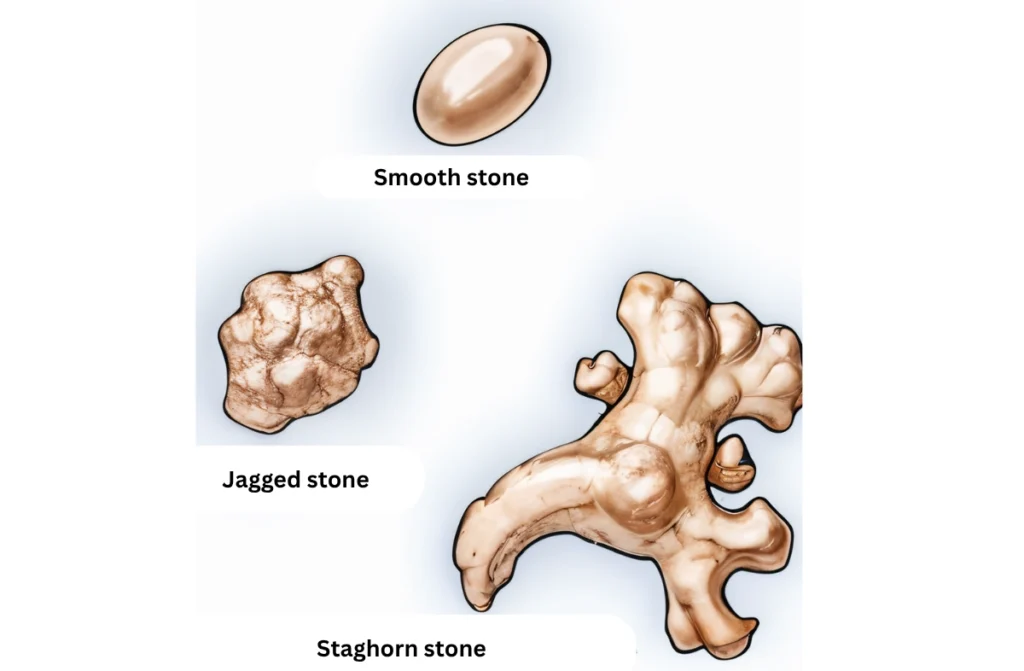Kidney stones are a common condition that can cause severe pain and discomfort. These hard mineral deposits form in the kidneys and can affect the entire urinary tract. Understanding the Types of Kidney Stones is essential for diagnosis, treatment, and prevention. At Sunway Medical Center, we specialize in offering comprehensive care for kidney stones, helping you identify and treat your specific condition with precision and expertise.
What Are Kidney Stones?
Renal calculi are solid crystalline masses that develop within the kidneys. They occur when the urine contains more crystal-forming substances, such as calcium, oxalate, and uric acid, than it can dilute. According to the Definition & Facts for Kidney Stones, they are a prevalent issue, affecting about 10% of people worldwide at some point in their lives.
These stones vary in size, shape, and composition, which is why understanding the Types of Kidney Stones is crucial for determining the most effective treatment.
Types of Kidney Stones
- Calcium Oxalate Stones
- The most common type of kidney stone, accounting for nearly 80% of cases.
- Calcium oxalate stones develop when calcium combines with oxalate in the urine, creating hard deposits in the kidneys
- Risk factors include high-oxalate foods like spinach, a high-sodium diet, and dehydration.
- Uric Acid Kidney Stones
- These stones form when the urine becomes too acidic.
- They are often linked to diets rich in red meat, shellfish, and other high-purine foods.
- Unlike other stones, uric acid kidney stones can sometimes dissolve with medication and dietary adjustments.
- Struvite Stones
- These are caused by urinary tract infections (UTIs) and can grow quickly into large, problematic stones.
- Struvite stones require prompt treatment to prevent complications.
- Cystine Stones
- Rare and often associated with a genetic disorder called cystinuria.
- Cystine stones develop due to excessive excretion of cystine, a naturally occurring substance in the body.
Understanding these Types of Kidney Stones and Causes helps guide both treatment and preventive measures effectively.

How to Identify the Type of Kidney Stone
The type of kidney stone you have is determined through diagnostic testing. At Sunway Medical Center, we offer:
- Urine Testing: To detect abnormal levels of minerals that form stones.
- Imaging Tests: Such as X-rays or CT scans to locate and size the stones.
- Stone Analysis: For stones that have been passed or surgically removed, to identify their composition.
Accurately identifying the Types of Kidney Stones ensures tailored treatment plans.
Are Different Types of Kidney Stones Treated Differently?
Yes, treatment varies depending on the type and size of the kidney stone:
- Calcium Oxalate Stones: Managed by reducing oxalate-rich foods and increasing fluid intake.
- Uric Acid Kidney Stones: Treated with medications to alkalize urine and dietary adjustments to reduce purine intake.
- Struvite Stones: Often require antibiotics to address the underlying infection and, in some cases, surgical intervention.
- Cystine Stones: Managed with high fluid intake and medications to lower cystine levels in the urine.
This personalized approach is based on understanding the Types of Kidney Stones and Causes for each individual.
Symptoms of Kidney Stones
Symptoms of kidney stones can vary depending on their size and location but often include:
- Severe pain in the side or back, often radiating to the lower abdomen.
- Hematuria, which may cause urine to appear pink, red, or brown.
- Frequent and painful urination.
- Nausea and vomiting.
- Cloudy or foul-smelling urine.
These symptoms should prompt an immediate visit to Sunway Medical Center, where experts can diagnose and treat the specific Types of Kidney Stones affecting you.
What Causes Kidney Stones?
The causes of kidney stones depend on their type, but common factors include:
- Dehydration: Low fluid intake leads to concentrated urine, increasing the risk of stone formation.
- Dietary Habits: High consumption of salt, sugar, or animal protein contributes to stone development.
- Family History: Genetics play a significant role in determining your risk.
- Medical Conditions: Obesity, gout, and inflammatory bowel disease can increase your susceptibility.
These Definition & Facts for Kidney Stones emphasize the importance of addressing these risk factors to prevent recurrence.
What Are Uric Acid Kidney Stones?
Uric acid kidney stones are a less common type of kidney stone that forms when urine becomes overly acidic. Unlike calcium-based stones, they are not as hard and may dissolve with appropriate treatment. Contributing factors include:
- High-protein diets rich in red meat and seafood.
- Conditions like gout that increase uric acid levels.
- Poor hydration, which concentrates uric acid in the urine.
What Is Uric Acid?
Uric acid is a natural byproduct formed when the body breaks down purines, substances found in certain foods and drinks. Normally, uric acid dissolves in the blood and passes through the urine. However, excessive uric acid levels can crystallize and form uric acid kidney stones.
How Are Uric Acid Kidney Stones Diagnosed?
At Sunway Medical Center, diagnosis involves:
- Blood Tests: To measure uric acid levels.
- Urinalysis: To detect acidic pH and other abnormalities.
- Imaging Tests: To confirm the presence and size of stones.
Symptoms of Uric Acid Kidney Stones
The symptoms of uric acid kidney stones are similar to those of other kidney stone types:
- Severe pain in the side or abdomen.
- Frequent urination with discomfort.
- Cloudy or discolored urine.
Early diagnosis and treatment are key to managing this condition effectively.
What Are the Risk Factors for Kidney Stones?
The Definition & Facts for Kidney Stones highlight the following risk factors:
- Insufficient Hydration: Not drinking enough water concentrates minerals in the urine.
- Diets High in Sodium or Protein: Excessive salt and protein intake increase the likelihood of stone formation.
- Obesity: Excess weight can alter the chemical balance of urine.
- Certain Medical Conditions: Conditions like diabetes and hypertension are closely linked to kidney stones.
Complications of Kidney Stones
Without proper treatment, kidney stones can lead to:
- Urinary Tract Infections (UTIs): Stones can cause blockages, leading to infections.
- Kidney Damage: Large or untreated stones can impair kidney function.
- Chronic Recurrence: Once you’ve had kidney stones, you’re at a higher risk of developing them again.
By understanding the Types of Kidney Stones and Causes, these complications can often be avoided.
How Are Kidney Stones Treated?
Treatment depends on the size, type, and severity of the stones:
- Small Stones:
- Increased fluid intake to flush out the stones.
- Over-the-counter pain relievers to manage discomfort.
- Larger Stones:
- Shock Wave Lithotripsy (SWL): High-energy sound waves break stones into smaller pieces.
- Ureteroscopy: A thin tube with a camera removes or breaks up stones.
- Percutaneous Nephrolithotomy (PCNL): Surgery used to remove large or complex kidney stones
Can Kidney Stones Be Prevented?
Yes! Preventive measures include:
- Hydration: Drink at least 8-10 glasses of water daily to dilute urine.
- Dietary Adjustments: Reduce salt, sugar, and animal protein intake.
- Regular Monitoring: Periodic check-ups at Sunway Medical Center to assess risk factors.
Taking these steps can significantly reduce your chances of developing any of the Types of Kidney Stones.
Conclusion
Understanding the Types of Kidney Stones is crucial for managing and preventing this painful condition. Whether it’s calcium oxalate, uric acid kidney stones, or any other type, seeking expert care ensures the best outcomes. At Sunway Medical Center, we are committed to providing personalized, comprehensive care tailored to your needs.
Also Read : Kidney Stones Treatment in Chennai




